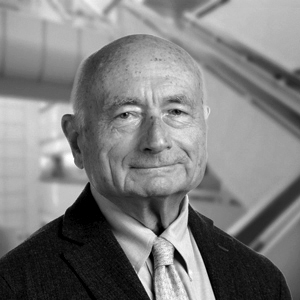Peter Vogt, PhD, a Scripps Research professor who has uncovered new genetic underpinnings of cancer, is among three scientists to receive Columbia University’s prestigious 2019 Louisa Gross Horwitz Prize.

Vogt, a professor in the Department of Molecular Medicine, shares the prize with Lewis Cantley, PhD, of Weill Cornell Medicine and David Sabatini, PhD, of Massachusetts Institute of Technology. Together, they are recognized for their seminal contributions to understanding of the role played by the phosphoinositide 3-kinase (PI3K) pathway in oncogenesis, or the process by which healthy cells become cancer cells.
The three scientists received their prize and delivered individual lectures in January at an awards ceremony in New York.
“The work of Cantley, Sabatini and Vogt has totally transformed cellular physiology and has profound implications for our understanding of cancer development,” says Gerard Karsenty, MD, PhD, chair of the Horwitz Prize Committee.
The prize honors outstanding basic research in the fields of biology or biochemistry. Of the 100-plus Horwitz Prize winners to date, 50 percent have gone on to receive a Nobel Prize. Scripps Research Nobel laureate Kurt Wüthrich, PhD, received the Horwitz Prize in 1991.